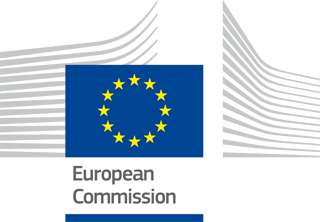

News
Diplomats visit Philippine hosted and EU-funded Centre to mitigate risks from agents of mass destruction in South-East Asia
EU CBRN Risk Mitigation CoE Initiative
Manila, 25 September 2013.


Funded by the European Union
Diplomats visit Philippine hosted and EU-funded Centre to mitigate risks from agents of mass destruction in South-East Asia
Embassy representatives in Manila converged to Malacañang on 25 and 26 September 2013 to visit the Regional Secretariat of the Centre of Excellence for Chemical, Biological, Radiological and Nuclear (CBRN CoE) Risk Mitigation for South-East Asia sponsored by the European Union (EU). The Delegation comprised diplomats from member states of the EU and the Association of South-East Asian Nations (ASEAN) as well as of Australia, Japan, Switzerland and the USA. A live demonstration of a chemical incident response was held after an informative morning session.
The Government of the Philippines is hosting the EU CBRN CoE Regional Secretariat for South-East Asia which does not only serve as a hub of expertise but is also facilitating the implementation of currently 19 projects in the region with a budget of more than 14 million Euros (more than 815 million Philippine Pesos) and addressing specific countries’ needs.
The EU CBRN CoE Initiative has a global budget of 95 million Euros (more than 5.5 billion Philippine Pesos) under the EU's Instrument for Stability from 2009 to 2013. It is implemented jointly by the European Commission's Joint Research Centre (JRC) and the United Nations Interregional Crime and Justice Research Institute (UNICRI). The Initiative aims to mitigate CBRN risks of criminal, accidental or natural origin through better prevention and preparedness. It does so by supporting policy, legal, institutional and technical measures through tailored project and improving coordination at national and regional levels.
The Initiative involves some 40 countries in 8 different regions of the world with Regional Secretariats being established in each region, namely: African Atlantic Façade; Central Asia; Eastern and Central Africa; Gulf Cooperation Council Countries; Middle East; North Africa; South-East Asia; South-East Europe, Southern Caucasus, Moldova and Ukraine. The Regional Secretariats ensure cooperation and coordination with partner countries and are responsible for supporting them in the identification of needs, the formulation and implementation of regional project proposals and the development of national action plans.
For more information:
CBRN Centres of Excellence website:
http://www.cbrn-coe.eu/
European Commission, Instrument contributing to Stability and Peace website:
http://ec.europa.eu/dgs/fpi/what-we-do/instrument_contributing_to_stability_and_peace_en.htm


Manila, 25 September 2013.


Funded by the European Union
Diplomats visit Philippine hosted and EU-funded Centre to mitigate risks from agents of mass destruction in South-East Asia
Embassy representatives in Manila converged to Malacañang on 25 and 26 September 2013 to visit the Regional Secretariat of the Centre of Excellence for Chemical, Biological, Radiological and Nuclear (CBRN CoE) Risk Mitigation for South-East Asia sponsored by the European Union (EU). The Delegation comprised diplomats from member states of the EU and the Association of South-East Asian Nations (ASEAN) as well as of Australia, Japan, Switzerland and the USA. A live demonstration of a chemical incident response was held after an informative morning session.
The Government of the Philippines is hosting the EU CBRN CoE Regional Secretariat for South-East Asia which does not only serve as a hub of expertise but is also facilitating the implementation of currently 19 projects in the region with a budget of more than 14 million Euros (more than 815 million Philippine Pesos) and addressing specific countries’ needs.
The EU CBRN CoE Initiative has a global budget of 95 million Euros (more than 5.5 billion Philippine Pesos) under the EU's Instrument for Stability from 2009 to 2013. It is implemented jointly by the European Commission's Joint Research Centre (JRC) and the United Nations Interregional Crime and Justice Research Institute (UNICRI). The Initiative aims to mitigate CBRN risks of criminal, accidental or natural origin through better prevention and preparedness. It does so by supporting policy, legal, institutional and technical measures through tailored project and improving coordination at national and regional levels.
The Initiative involves some 40 countries in 8 different regions of the world with Regional Secretariats being established in each region, namely: African Atlantic Façade; Central Asia; Eastern and Central Africa; Gulf Cooperation Council Countries; Middle East; North Africa; South-East Asia; South-East Europe, Southern Caucasus, Moldova and Ukraine. The Regional Secretariats ensure cooperation and coordination with partner countries and are responsible for supporting them in the identification of needs, the formulation and implementation of regional project proposals and the development of national action plans.
For more information:
CBRN Centres of Excellence website:
http://www.cbrn-coe.eu/
European Commission, Instrument contributing to Stability and Peace website:
http://ec.europa.eu/dgs/fpi/what-we-do/instrument_contributing_to_stability_and_peace_en.htm





